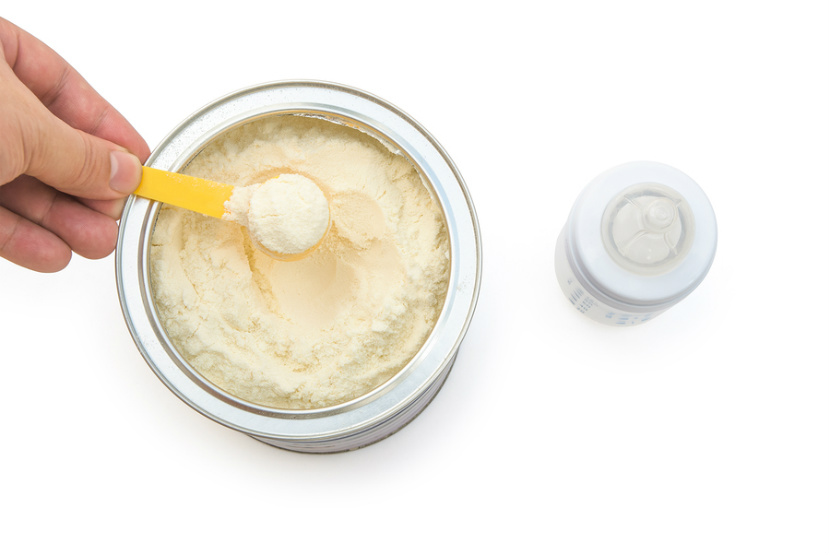
Breastfeeding is best for you and your baby. If you choose to use infant formula, here is some information on the different types available.
What is infant formula?
Infant formula is a breastmilk substitute that is usually made from cow’s milk protein. Vitamins, minerals and nutrients are added to the formula to make it similar to (but not the same as) breastmilk. Infant formula can also have omega-3 fats called ARA (arachidonic acid) and DHA (docosahexanic acid) added. Omega-3 fats may help develop your baby’s brain and eyes.
When is infant formula used to feed babies?
Infant formula is used if a baby is not being breastfed or is only partly breastfed. Infant formula can be used as the only source of nutrition for babies aged 0 to 6 months. It is usually given to babies up until 9 to 12 months of age. Most healthy babies do not need formula after one year of age.
What are the different types of infant formula?
Cow’s milk-based: Iron-fortified cow’s milk formulas are the best choice for healthy infants.
Soy-based: This type of formula contains soy protein instead of milk protein. Soy-based formula can be used for cultural or other reasons, like if your family eats a vegan/vegetarian diet. Sometimes babies with a cow’s milk allergy can drink soy formula, but many babies cannot because milk allergy and soy allergy can happen together. If your baby has a cow’s milk allergy, speak to your doctor before giving your baby soy-based infant formula.
Extensively hydrolyzed: This type of formula is used when your baby is allergic to cow’s milk-based formula and/or soy-based formula. Extensively hydrolyzed formulas have proteins that are broken down so that they do not cause an allergic reaction.
Partially hydrolyzed: This type of formula may be used to help prevent allergies in babies who are at high risk for allergies. These formulas have proteins that have been partly broken down. If you are unsure about what type of formula to use, ask your doctor or health care provider.
What are the different forms of infant formulas?
There are three forms of infant formulas. Ready-to-feed, liquid concentrate and powdered.
Ready-to-feed:
-
Do not require you to add water.
-
They are sterile until opened and can be used for babies from birth to 9 to 12 months of age.
Liquid concentrate:
-
Require you to add water. Mixing the proper amount of formula and water together is very important for your baby’s health.
-
They are sterile and can be used for babies from birth to 9 to 12 months of age.
-
Once the can is opened, liquid concentrate formulas are no longer sterile.
Powdered:
-
Require you to add water. It is important to add exact amounts of water at the right temperature. Mixing the proper amount of formula and water together is very important for your baby’s health.
-
They are not sterile.
-
Powdered infant formula can be used for healthy babies over the age of 2 months.
Speak to your doctor first before using powdered infant formula if your baby:
-
Is under the age of 2 months, especially if your baby is premature or had a low birth weight.
-
Has an illness at any age.
How can I learn more about infant formula?
Talk to your healthcare provider for more specific answers to your questions about infant formula and your baby. Here are some questions you can ask:
-
What is the best type of formula for my baby?
-
Should I use an infant formula with probiotics?
-
My baby is gassy. Should I use lactose-free infant formula?
-
What if my baby is having problems with the formula?
-
My baby is allergic to cow’s milk. What kind of formula should he be on?
-
Which infant formula should I choose if I want to switch from breastfeeding or want to breastfeed only some of the time?
Keeping formula safe
Here are some questions to ask about keeping formula safe.
-
How do I prepare infant formula?
-
Can I make extra formula to use later? How do I do this?
-
How long is it safe to keep formula in the fridge?
-
How do I make sure the formula is at the right temperature when feeding my baby?
-
How long can I keep the formula safe at room temperature?
Feeding my baby other foods
Here are some questions to ask your healthcare provider about feeding your baby other foods:
-
When should I stop giving my baby infant formula?
-
When can I offer my baby cow’s milk?
-
Can I give my baby other types of milk like rice milk, almond milk, soy beverage or coconut milk?
Bottom Line
If you are using infant formula, it is important to know how to safely prepare, use and store it talk to your healthcare provider.
You may also be interested in:
Introducing solid food to your baby
Breastfeeding benefits for babies
Last Update – November 7, 2018